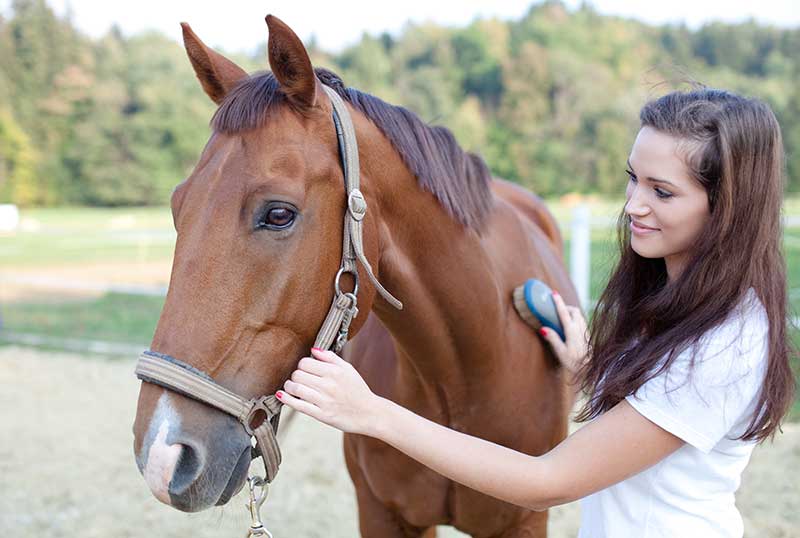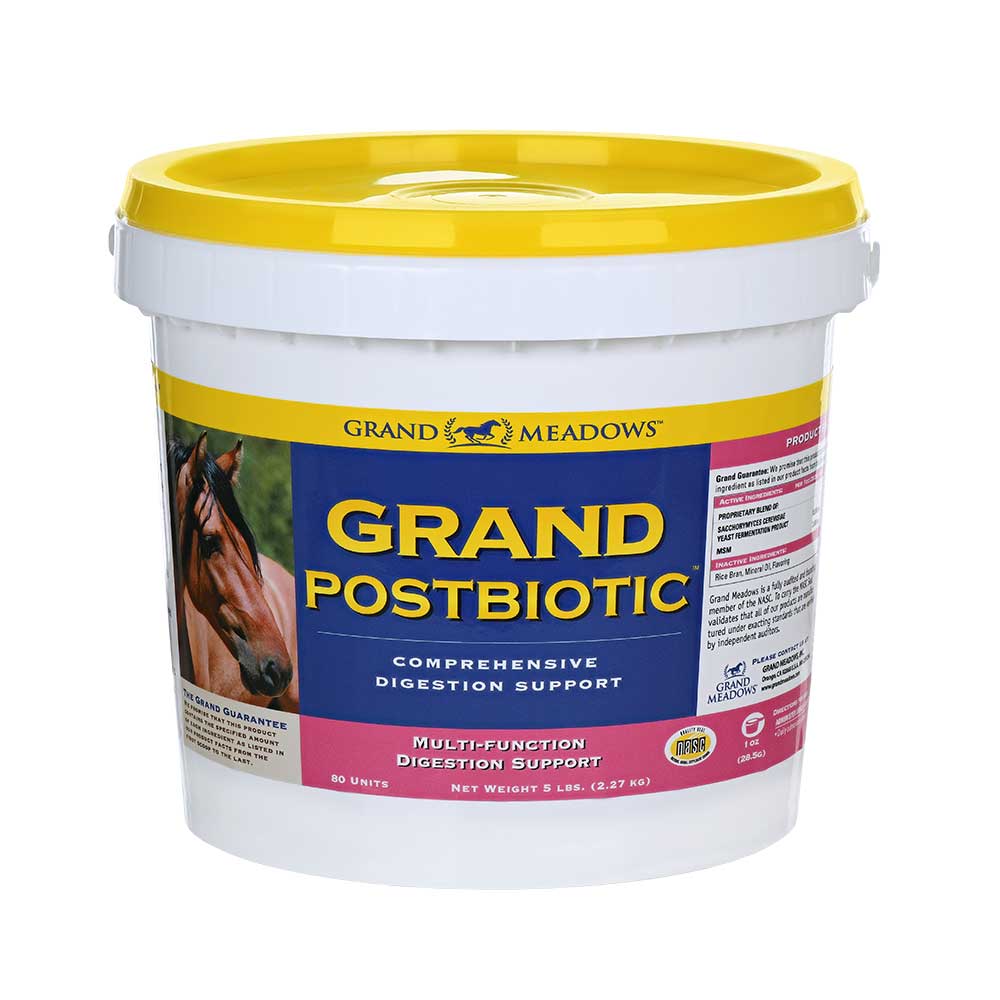Horse Health
Healthy Horse Coat: How To Give Your Horse a Healthy Coat and Improve Their Health.
Learn How Equine Supplements Improve Horse Coat Health and Shine
To ensure a healthy horse coat and improve your horse’s health, you need to pay attention to all aspects of your horse’s health. A balanced diet, good grooming technique, consistent exercise, and regular vet visits are key.
Your horse’s coat can be an indicator of their overall health. Brittle coats, dryness, lack of shedding, and dull color are all signs that your horse is not feeling their best. Your horse should have a shiny glossy coat.
However, before you make any changes to your horse care habits and feeding, consult a veterinarian. It’s important to rule out underlying health conditions such as worms, parasites, and other skin conditions including warts, rain rot, proud flesh, hives, and summer sores.
What Your Horse’s Coat Says About Their Health
Your horse’s coat is a window into how your horse is feeling inside and out. Beyond just looking great, a shiny glossy coat is a sign that your horse is healthy. And a dry dull coat tells you that that your horse is not well.
For example, a horse with a parasite infection will have a rough, dull, and scraggly coat. And irregular shedding with clumping or matting can be a sign of a fungal infection. These two examples underscore why you need to pay close attention to horse coat health.
Just like humans, your horse’s coat and skin health are directly connected to nutrition. If your horse is missing out on key nutrients, their coat will lack shine and gloss. Make sure your horse is getting adequate minerals and vitamins, amino acids, and protein.
Your horse’s skin and coat form an all-important protective barrier against bacteria and infection. Any scabs, blisters, bites, or sores are gateways for parasites, viruses, bacteria, and infections.
How To Give Your Horse a Healthy Coat
To give your horse a health coat, follow these horse coat health habits and recommendations:
- Essential Nutrients. Make sure your horse is getting all essential nutrients they need to stay healthy. Remember that your horse cannot produce essential fatty acids (EFAs) such as Omega 3s and Omega 6s. These key nutrients must come through diet.
Flax meal contains one of the highest concentrations of EFAs with the correct ratio of Omega 3 to Omega 6. Additionally, it is important for various metabolic processes, such as the regulation of inflammatory markers.
- Regular Grooming. Your horse needs daily grooming. Use a range of accessories including damp cloths, dry wool mitts, brushes, mane and tool combs, sponges, and a hoof pick. Comb out any tangles and knots in the mane. Inspect your horse’s hooves and look for irregular wear patterns or cracks. Use your grooming mitt to remove any dirt, mud, or grit from your horse’s coat.
It’s during grooming that you have a real chance to take a close look at your horse’s coat health. Pay attention to skin irritations, hair patterns such as patchy hair or matted hair, coat thickness and curl, and the overall shine in the coat.
- Exercise. Yes, exercise is key to horse coat health. Along with helping your horse build muscles, stay limber, prevent boredom, and burn off extra energy, exercise helps keep your horse’s coat healthy.
Exercise increases the number of blood vessels and capillaries that deliver essential nutrients and oxygen to your horse’s skin. Often overlooked is the benefit of sweat and sebum in your horse’s coat health. Sweating helps your horse naturally release toxins. Sebum is secreted by hair follicles to help give your horse’s coat a glossy healthy shine and to help protect the skin from moisture loss and dryness.
- Deworming. A dull coat can be a sign that your horse has worms. Follow your veterinarian’s recommendation for a regular worming program. Signs that your horse may have a high worm load include low energy levels and a dull, dry coat. Always consult your veterinarian as soon as you notice any changes in your horse’s energy, conditioning, mood, or skin and coat.
How Supplements Improve Horse Coat Health and Shine
It’s a fact that your horse cannot get everything they need from feed. You need to give your horse proven horse supplements to fill in dietary gaps.
Pay attention to these signs of poor horse coat health and overall health:
- Lack of sweating on hot days or when exercising.
- Itchiness and scratching.
- A change in hair color, patchiness, hair thinning, and skin irritations.
- Reduced shed rate.
- Any irregularities including scaling, crusting, blisters, bumps, and other sores.
- General dullness, lack of shine, and thickness in the horse coat.
These can all be signs that your horse has an underlying health condition including dental problems, parasites, ulcers, and poor nutrition. Make sure your veterinarian gives your horse a thorough check-up and talk about how and what you are feeding your horse.
Do discuss horse supplements with your veterinarian. To help give your horse a healthy coat and to solve any nutritional imbalances, the horse supplement should include:
- Omega 3 & 6 Fatty Acids: Omega 3 & 6 fatty acids prevent moisture loss in skin cells that lead to dry and flaky skin. Omega 3 helps control skin inflammation and gives coats a bright, glossy appearance.
- Biotin: Biotin is an essential requirement for the health of dermal and connective tissues.
- Heat Stabilized Flax Meal: A digestible source of flax meal, high in Omega 3 that will support the structure and function of skin cells. Normal flax meal has a very short shelf life and can quickly turn rancid, particularly in the summer. Grand Meadows use a special heat stabilized flax meal that has a two-year shelf life.
- Dried Saccharomyces Cerevisiae Postbiotic Fermentation Product: Is a true, fully-fermented prebiotic yeast culture that supplies a potent combination of nutrients to support effective digestive function and to enhance nutrient absorption in both the small and large intestine. Remove phospholipids, a vital requirement for helping support healthy skin and a deeper improved coat color.
- Lecithin contains phospholipids, a vital requirement for helping support healthy skin and a deeper improved coat color.
Nutrition is key to giving your horse a healthy coat. We cannot emphasize enough how every aspect of your horse’s health starts with what you are and are not feeding your horse. Remember that forage alone does not give your horse everything they need – your horse’s coat, joint, digestive, hoof, and immune health needs extra vitamins, minerals, and nutrients.
When reading horse supplement ingredients make sure the supplement is manufactured in an FDA-approved facility. Additionally, verify that the manufacturer is a member of the National Animal Supplement Council (NASC). The mission of the NASC is to police the supplement industry, ensuring that the animal health supplements produced by member companies are safe and effective.
Our goal at Grand Meadows is to make sure that every aspect of your horse’s health is taken care of. Horse health is our priority. Contact us with any questions you have about horse coat health and how supplements help your horse feel their best.


